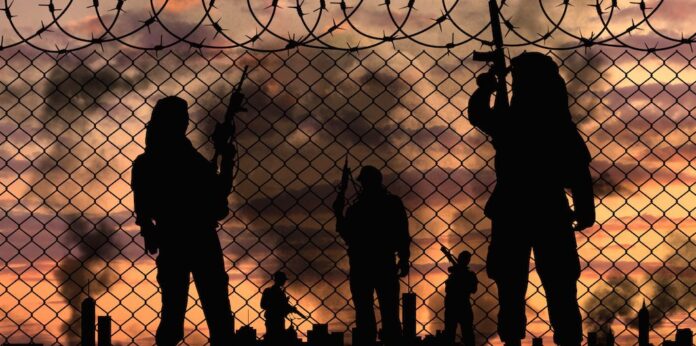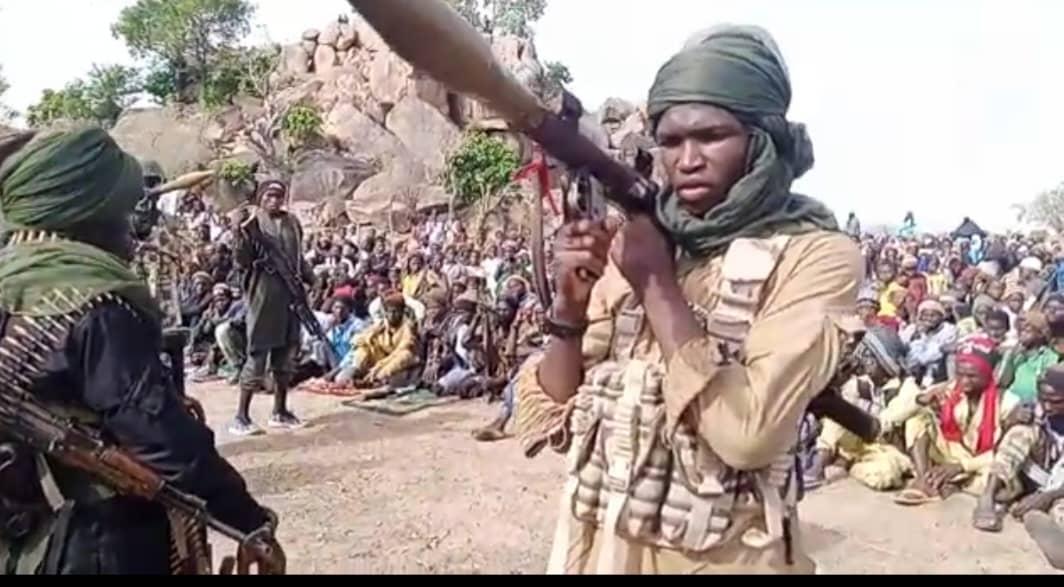The U.S. Department of State’s Rewards for Justice program is offering a reward of up to $3 million for information leading to the location or identification of Muhammad Khadir Musa Ramadan, a senior leader of and key propagandist for ISIS.
Also known as Abu Bakr al-Gharib, Ramadan was born in Jordan.
He is one of ISIS’s longest-serving senior media officials and oversees the group’s daily media operations, including the management of content from ISIS’s dispersed global network of supporters.
Ramadan has played a key role in ISIS’s propaganda operations to radicalize, recruit, and incite individuals around the globe. He has overseen the planning, coordination, and production of numerous propaganda videos, publications, and online platforms that included brutal and cruel scenes of torture and mass execution of innocent civilians.
More information about this reward offer is located on the Rewards for Justice website at www.rewardsforjustice.net. We encourage anyone with information on Muhammad Ramadan to contact the Rewards for Justice office via the website, e-mail ([email protected]), phone (1-800-877-3927 in North America), or mail (Rewards for Justice, Washington, D.C., 20520-0303, USA). Individuals may also contact the Regional Security Officer at the nearest U.S. embassy or consulate. All information will be kept strictly confidential.
Read Also:
The Rewards for Justice Program is an effective law enforcement tool and is administered by the U.S. Department of State’s Diplomatic Security Service. Since its inception in 1984, the program has paid in excess of $150 million to more than 100 people who provided actionable information that helped bring terrorists to justice or prevented acts of international terrorism worldwide. Follow us on Twitter at https://twitter.com/Rewards4Justice.
AFRICOM commander reaffirms bilateral partnership with Tunisia
U.S. Africa Command
Public Affairs
Stuttgart, Germany
May 29, 2020
U.S. Army Gen. Stephen Townsend, commander, U.S. Africa Command, spoke with His Excellency Imed Hazgui, Minister of Defense of the Republic of Tunisia, May 28.
During a telephone call, the leaders discussed upcoming training and exercise opportunities as they reaffirmed the strong American-Tunisian bilateral partnership.
“Tunisia is a prime example of how U.S. support to our African partners aids long-term self-sufficiency, security, and development,” said Townsend. “Our relationship with Tunisia is centered on enhancing our partnership to achieve mutual security goals.”
Tunisia recently completed its second round of free presidential election after its 2011 revolution, showing continued commitment to democratic ideals. Tunisians continue to prioritize and invest in their security complementing U.S. security cooperation investments with national funds.
Since 2011, the U.S. has invested more than $1 billion in the Tunisian military. Mutual efforts have enhanced Tunisian border security, military intelligence, and air-ground operations.
“We know many of our African partners are under siege from malign actors and terrorist networks,” said Townsend. “We also know we can’t surge trust.
Therefore, we remain committed to strengthening critical partnerships and working together to deliver solutions to common challenges.”
Townsend and Hazgui also discussed the importance of improved security in North Africa. With the ongoing violence in Libya and the need to ensure broader regional security, Townsend is looking at various capabilities and U.S. strengths that further partnership and enhance regional security and stability.
“As Russia continues to fan the flames of the Libyan conflict, regional security in North Africa is a heightened concern,” said Townsend. “We’re looking at new ways to address mutual security concerns with Tunisia, including the use of our Security Force Assistant Brigade. Tunisia recognizes the benefits of American values, professionalism, and commitment. They very much value our partnership.”
The U.S. and Tunisia have a shared history of working together on training exercises and professional military education opportunities. One recent example is the month-long training course co-hosted last fall for female intelligence officers in Northwest Africa. In addition, earlier this spring a senior U.S. interagency delegation attended the inaugural Tunisia International Aerospace and Defense Exhibition, another sign of the expanding relationship between the U.S. and Tunisia.
Credits| US Department of State




